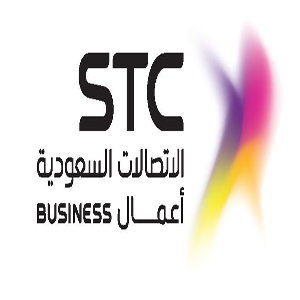
STC أعمال الراعي التقني لفعاليات المنتدى الإحصائي الخليجي
STC Business technical sponsor for the Gulf Statistical Forum
Under the Royal hospice of the Custodian of the Two Holy Mosques, King Salman bin Abdulaziz Al Saud - may God protect him - and with the organization of the General Authority for Statistics and GCC Statistical Center, STC Business will participate, as an activities technical sponsor, in the Gulf Statistical Forum, which will be held under the theme "Enhancing Statistical partnerships to support economic policies and sustainable development in the GCC countries.", at the Marriott Hotel in Riyadh during the period from March 20th to 22nd, 2017.
The Forum will bring together 40 GCC and international speakers to discuss strengthening the statistical partnerships in view of supporting economic and development policies. They will discuss several key issues which are: requirement for data and statistical information ensuing from national development trends, the agenda for sustainable development and emerging global economic issues, provision of statistical products and services to support national development trends, and sustainable development in the GCC countries, in addition to conducting research on enhancing the statistical partnerships between users and producers of data to support the economic policies in the GCC countries.
STC Business pavilion accompanying the forum, will display a group of communication services and information technology solutions, with an explanation of the most important advantages and benefits that contribute to the success of statistical work and support digital transformation in the domestic and the Gulf region.
This sponsorship comes within STC Business endeavor to support and meet the requirements and needs of their customers in both public and private sectors, through a variety of connectivity products based on mobile and fixed networks technology, providing integrated digital solutions, cloud computing , and managed services.
STC Business Unit provides solutions and services, telecommunications and information technology in a way that meets the government and companies demands and requirements. This is carried out through the most advanced data centers distributed around the Kingdom. These centers are connected through a network of optical fibers whose length attains more than 147, 000 kilometers, and are supported with a mobile network covering 96% of the populated areas in KSA, and uses technologies of the Second and Third Generation, while 96% of the network uses the Fourth Generation technology known as LTE. These national networks are linked to the world through a number of cross-border land and sea cables and an Internet gate which is the largest in the MENA region, where its communication capacity attains 1.5 Terabit / sec. and passes 12 Beta Bytes of data per day.
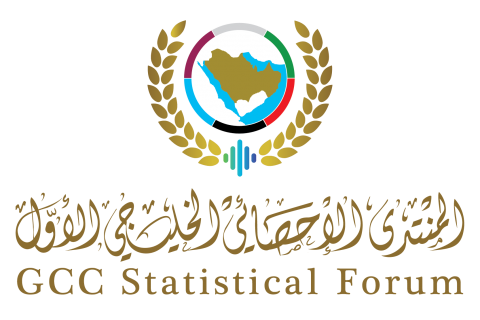
8 أيام تفصل عن انطلاق فعاليات المنتدى الإحصائي الخليجي الأول
8 days until the beginning of the 1st GCC statistical forum events
After 8 days, the 1st GCC statistical forum events will begin in Riyadh under the theme " enhancing statistical collaborations to support economic policies and sustainable development in the GCC region". The forum will be under the patronage of the custodian of the two holly mosques king Salman bin Abdulaziz Al Saud, and organized by the general authority for statistics and the GCC statistical center on 21-23 Jumada second 1438 H corresponding to 20-22nd of March 2017.
The forum, in which there will be 40 speakers from the gulf region and other countries, other people who are specialized in statistics such as data producers and users, and people from the academic sector, focuses on main axes which are: statistical data and information request resulted from the national developmental tracks, sustainable development agenda and international economic issues, discussing the provision of statistical products and services to support the national developmental tracks and sustainable development in the GCC region, in addition to discussing the statistical collaborations between data producers and users to support the economic policies and sustainable development in the GCC region.
The first day will witness the opening event. Many political personalities will attend such as ministers, GCC general secretariat leaders, ambassadors, statistical organizations heads, international and regional organizations representatives, statistical sector specialists, media, and other participants.
The forum events will begin with 4 sessions on the first two days. On these sessions, the first axe will be discussed from an international perspective which is about statistical data and information request. Also, the sessions will discuss the international issues and their impact on the policies and reforms all over the world and on the gulf region in particular. Data needs and gaps will be taken into consideration too. Data request will be discussed also from a national and regional perspective. There will be a general session titled " statistics production and publication: the strategic motives of the national statistical organizations works". It will be followed by another general session that discusses the third axe which is about collaborations " next steps: towards sustainable framework and mechanisms for cooperation and dialogue between users and producers".
Along with the forum events, there will be 6 seminars; the first will discuss measuring the progress in achieving the sustainable development goals, the second is about enhancing the statistical knowledge. Whereas the third will focus on statistical media, and the fourth is about the mechanisms od statistical development by using information and telecommunication technologies. On the fifth seminar, data revolution will be discussed, it will present the cooperation between Arab countries to benefit from data revolution in enhancing statistics production and publication. After that, there will be two presentations about the preparations and challenges, they will be presented by one of the GCC countries and the GCC statistical center. As for the last seminar, collaborations between the public and private sectors in the field of statistics will be discussed.
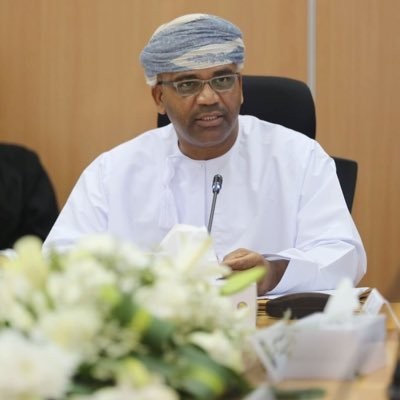
لأول مرة.. انطلاق المنتدى الإحصائي الخليجي في العاصمة الرياض.. نهاية الشهر الجاري
Gathering 40 gulf and international speakers, discussion sessions and workshops
For the first time… the launching of the GCC Statistical Forum in Riyadh.. the end of this month
Sabir Al Harbi: the patronage of King Salman confirms his interest in reinforcing GCC joint work
Hessa AlJanahi: the meeting of data producers and users will contribute in building sustainable frameworks and mechanisms for cooperation
The Director General of the Statistical Centre for the Cooperation Council for the Arab Countries of the Gulf (GCC-Stat), Mr. Sabir bin Said Al Harbi, affirmed that the patronage of the Custodian of the Two holy Mosques of the first statistical forum which will be held later this month confirms his interest in reinforcing GCC joint work, enabling the cooperation in the development and economy files, and linking and coordinating between GCC countries in all fields.
Mr. Al Harbi stressed on the importance of the forum which will be held for the first time, gathering 40 gulf and international speakers with data producers, data users, and the academic sector. They will discuss many main axes like: the request of statistical data and information that results from the national- developmental tracks, sustainable development agenda, and international economic issues. They will also discuss the provision of statistical data and services to support the national- developmental tracks and sustainable development in the GCC region. In addition to discussing the main theme which is enhancing statistical collaboration between data users and producers to support economic policies and sustainable development in the GCC region. The forum will be under the theme " enhancing statistical collaborations to support economic policies and sustainable development in the GCC region" under the patronage of the Custodian of the Two Holly Mosques king Salman bin Abdulaziz Al Saud, and organized by the general authority for statistics and GCC- Stat.
The Director General of GCC-Stat pointed that the forum comes in a time when current global political and economic developments forms a challenge in the Gulf Region, which leads us to guard by precise economic development trends that fit global changes, especially statistical wise. This appears in the importance of the existence of good, reliable, classified and timely data that measures the progress towards achieving economic growth and diversifying its sources.
On the other hand, the GCC-Stat consultant, Mrs. Hessa AlJanahi, said that the forum is considered one of the manifestations of GCC governments interest to building sound national statistics derived from strategic motivations that serve the goals of 2030 sustainable development.
Mrs. AlJanahi predicted that the meeting of data producers, data users and relevant sectors will contribute in building sustainable frameworks and mechanisms for cooperation and creating strong collaborations in order to bridge the gap between statistics producers, including, statistical systems and statistics users from government and public entities, academics, researchers, or other users.
The forum will start with the opening on the first day. Many politicians will attend such as ministers, GCC secretariat leaders, ambassadors, statistical organizations presidents, national and international organizations representatives, statisticians, media specialists, and other participants.
In the next two days, the sessions will start with discussing the first axe which is about statistical data and information request: the request from an international prospective and focusing on the international issues and their impact on policies and reforms all over the world in general and in the gulf region in particular. In addition to data needs and gaps, it will also discuss request from a national and regional perspective, a general session titles" producing and publishing statistics: the strategic motives of the national statistical entities' works", followed by a general session about the third axe which is associated with collaborations " next steps: towards sustainable mechanisms and framework for cooperation between users and producers". Along with the forum activities, 6 workshops will be held: the first will discuss measuring the progress in achieving sustainable development goals, the second is about enhancing statistical knowledge. As for the third, it will be about the statistical media. In the fourth workshop, the participants will get to know the mechanisms of statistics development by using information and communication technologies. However, the fifth will discuss data revolution which will present cooperation between Arab countries to get benefited from data revolution in enhancing the production and publishing of statistics. After that, two presentations will be presented by one of the GCC countries and the GCC statistical center about the preparations and challenges. Regarding the last workshop, it will discuss the collaborations between the public and private sectors in the field of statistics. Statistical sector interested individuals can register to attend the forum events by visiting the website through the link: https://www.stats.gov.sa/gccsf/en
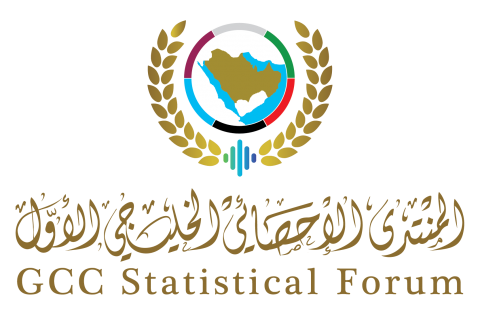
40 متحدثاً خليجياً ودولياً يناقشون تعزيز الشراكات الإحصائية لدعم السياسات الاقتصادية والتنمية.. في مارس المقبل
Within the activities of the first GCC statistical forum
40 speakers from the gulf and other regions discuss enhancing statistical collaborations to support economic policies and development, next March
GCC statistical forum, which will be held in Riyadh from 21st to 23rd of Jumada 2nd corresponding to 20th to 22nd of March 2017, is receiving 40 speakers from the gulf and other regions of the world, in addition to several people who are interested in statistics. They all will be gathering in a forum held for the first time under the theme " enhancing statistical collaborations to support economic policies and sustainable development in the GCC region" under the patronage of the two holly mosques king Salman bin Abdulaziz Al Saud, and organized by the general authority for statistics and GCC statistical center.
The forum will gather many people who deal with statistics such as: data producers, data users, and the academic sector. They will discuss many main axes like: the request of statistical data and information that results from the national- developmental tracks, sustainable development agenda, and international economic issues. They will also discuss the provision of statistical data and services to support the national- developmental tracks and sustainable development in the GCC region. In addition to discussing the main theme which is enhancing statistical collaboration between data users and producers to support economic policies and sustainable development in the GCC region.
In details, the opening of this forum will be on the first day. Many politicians will attend such as ministers, GCC secretariat leaders, ambassadors, statistical organizations presidents, national and international organizations representatives, statisticians, media specialists, and other participants.
On the next day, the sessions will start with discussing the first axe which is about statistical data and information request: the request from an international prospective and focusing on the international issues and their impact on policies and reforms all over the world in general and in the gulf region in particular. In addition to data needs and gaps. The session will be headed by Mr. Abdulaziz Alfuraih, vice governorate of the Saudi Arabian monetary fund. Prof. many speakers will start on that day such as: Enrico Guvannini, economic statistics professor in Roma university, Italy, Mr. Paul Schreyer, vice director of statistics in OECD, Mr. Jose Roberto Rosales, deputy director of statistics department in IMF, and dr. Khalfan bin Mohammed Albarwani, vice executive president of banking operations, research, and statistics in Oman central bank.
As for the second session, it will be headed by dr. Johannes Jütting, director of Paris secretariat in the OECD. They will discuss request from a national and regional perspective. The participants in this session include: de. Salem bin Nasser Alqudhai'e, vice minister of economy and planning, Mrs. Faridah Abdulrahim Khanji, director of analysis and assessment department in the office of his highness the president of ministers' cabinet in Bahrain, ambassador. Ashok Nigam, UN Resident Coordinator and UNDP Resident Representative for the Kingdom of Saudi Arabia, Mr. Khalifah bin Saeed Alabri, assistant general secretary of economic and developmental affairs in the GCC general secretariat.
On the third day, the forum works continue with a session titles" producing and publishing statistics: the strategic motives of the national statistical entities' works". This session will be headed by ambassador. Mossa Kolaklikaya, general director of statistical, economic, and social research and training in the Islamic countries (Ankara center). The participants also include: Mr. Taiseer bin Mohammed Almofarrij, from the general authority for statistics in Saudi Arabia, Mr. Mohammed Hassan ahli, executive director of statistics and national data sector in the federal competitiveness and statistics authority, UAE, Mrs. Sawsan Dawood Allawati, general director of the information directory in the national statistics and information center, Oman, and dr. Rashoud bin Mohammed Alkhuraiyef, supervisor of demographic studies center in king Saud university.
After that, a general session about the third axe which is associated with collaborations will begin " next steps: towards sustainable mechanisms and framework for cooperation between users and producers" headed by Mr. Saber bin Saeed Alharbi, the general director of GCC statistical center, with the participation of the forum workshops heads to discuss the workshops results and recommendations according to the forum three axes: data request, producing and publishing data, and collaborations between statistics users and producers. At last, a final session will start to announce the forum recommendations.
Along with the forum activities, 6 workshops will be held: the first will discuss measuring the progress in achieving sustainable development goals, the second is about enhancing statistical knowledge. As for the third, it will be about the statistical media. In the fourth workshop, the participants will get to know the mechanisms of statistics development by using information and communication technologies. However, the fifth will discuss data revolution which will present cooperation between Arab countries to get benefited from data revolution in enhancing the production and publishing of statistics. After that, two presentations will be presented by one of the GCC countries and the GCC statistical center about the preparations and challenges. Regarding the last workshop, it will discuss the collaborations between the public and private sectors in the field of statistics.
At the end of the forum works, a session will be held and headed by dr. Fahad bin Sulaiman Altekhaifi, GaStat president. In this session, the forum recommendations will be announced regarding enhancing collaborations between statistical data and information producers and users on the national and regional levels. Then, a concluding speech will be delivered by GCC statistical center and the general authority for statistics.
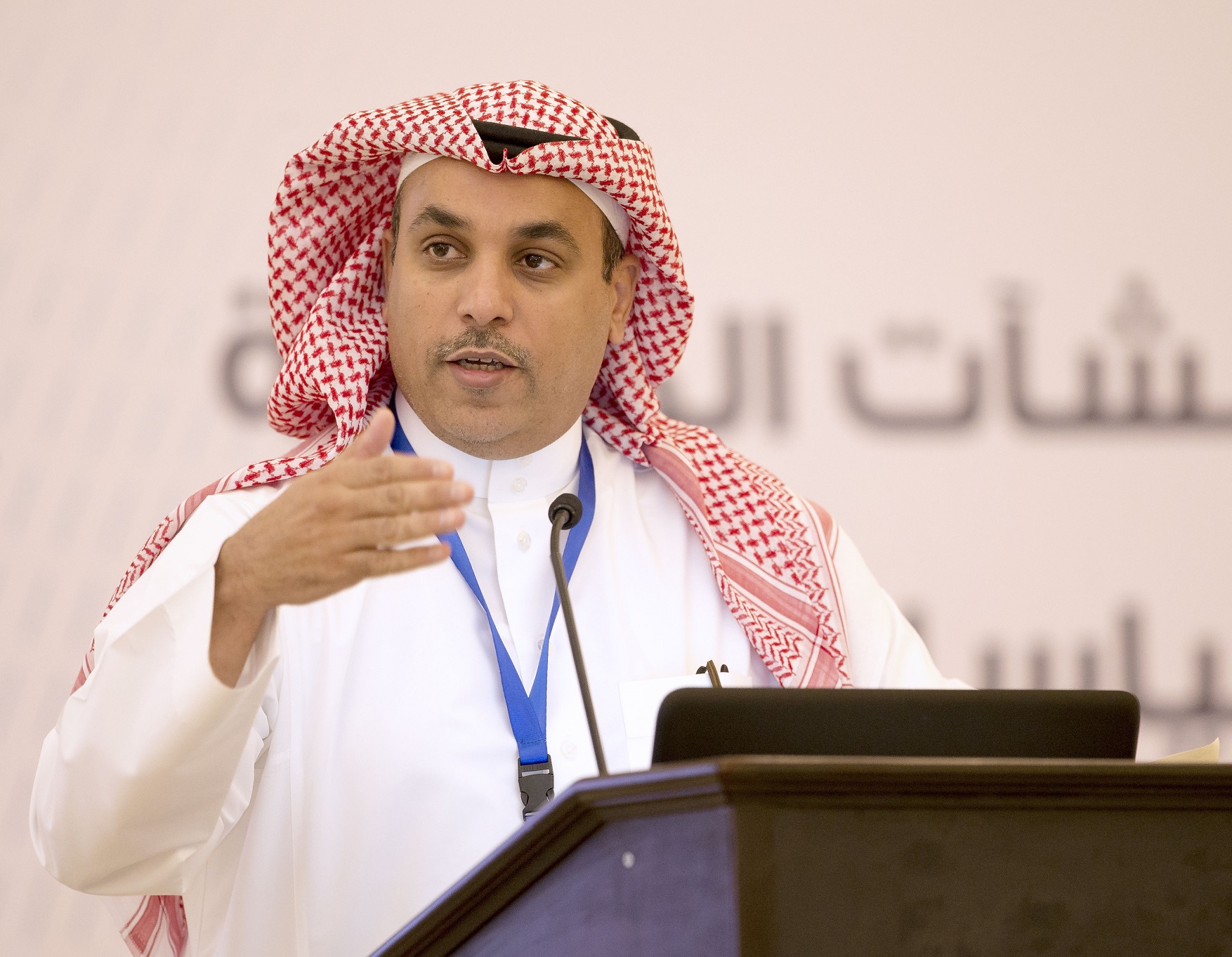
تشاركية بين " الهيئة العامة للإحصاء " والقطاع الخاص لتطوير العمل الإحصائي
announcing (6) new economic surveys to support development
Collaboration between GsStat and the private sector to develop statistical work
GaStat revealed new economic surveys to be implemented this year and next year. These surveys aim at fulfilling the development needs, they include: insurance activity survey, direct foreign investment survey, intermediate and small establishments survey, retail activity survey, non-profit sector survey, and tourism survey.
This was mentioned in the second workshop held by GaStat yesterday (Monday) 13th February 2017 in Jeddah. HE dr. Fahad bin Sulaiman Altekhaifi, GaStat president, said that the private sector is an essential partner in the national development. He added, it integrates all public sectors and institutions in a way that strengthens the national economy. The collaboration between "statistics" and the private sector is part of the developmental movements which aim at achieving the 2030 Saudi vision and representing that with indicators that reflect the progress in the achievement of this vision. The role of GaStat, statistical national commission, and the statistical sector in general became more important now as the need for accurate statistical data, effective indicators, and measurement tools increased. Dr. Fahad indicated that one of the most important stages that GaStat works on these days is meeting the clients' needs whether from the public or private sector. It also works on establishing effective collaborations locally, nationally, and internationally with related parties. In addition to creating indicators necessary for current and future needs. GaStat works with its partners on unifying the information sources, facilitating their access, and providing innovative statistical products with international standards.
On the other hand, Mrs. Kholoud Aldakhail, the national statistical commission chairman, stated that the commission was established under the umbrella of the council of Saudi chambers based on the Saudi chambers board resolution number 13 /88/m issued in 15/6/1437 H as response to the ministry of economy and planning and GaStat request. This reflects GaStat initiative to make the private sector a collaborative sector. She asserted that the role of this committee, which include 23 members who work in the field of statistics, data, and information, is represented in the coordination with Saudi chambers of commerce all over Saudi Arabia. The coordination will be about statistical work activation, data exchange, and proposing methods to enhance the statistical work impacts on the private sector. Furthermore, it deals with elaborating the use of statistics in private sector, deepen relations between GaStat and Saudi chambers of commerce.
The workshop discussed two main themes; the requirements of data users in the private sector as one of the statistical sector components, determining required additional data by activity, and the proposed methods to develop the mechanism of data collection from the private sector institutions. GaStat has presented the economic surveys and the new surveys that will be implemented by them during these two years. They also presented the six tracks based on which the authority work which can be summarized in; a work strategy about the authority clients and partners to fulfill the actual need of statistical products, then developing these products and services and improving the statistical operations and methodologies. Also, raising the level of information technology and digital infrastructure to enable products to start from a strong base that can be adapted with any change. Moreover, focusing on raising statistical awareness, and building capabilities in the statistical field. In addition to structuring all GaStat tasks and departments.
At the end of the workshop, dr. Fahad expressed his thanks to all the participants. He asserted that the workshop outputs will contribute in enhancing the effectiveness of the decisions made by the private sector and its policy makers for the citizen's advantage and society economies which enhance his role in the domestic product growth, and guarantee making proper decisions based on accurate data to facilitate measuring their result and reflections.
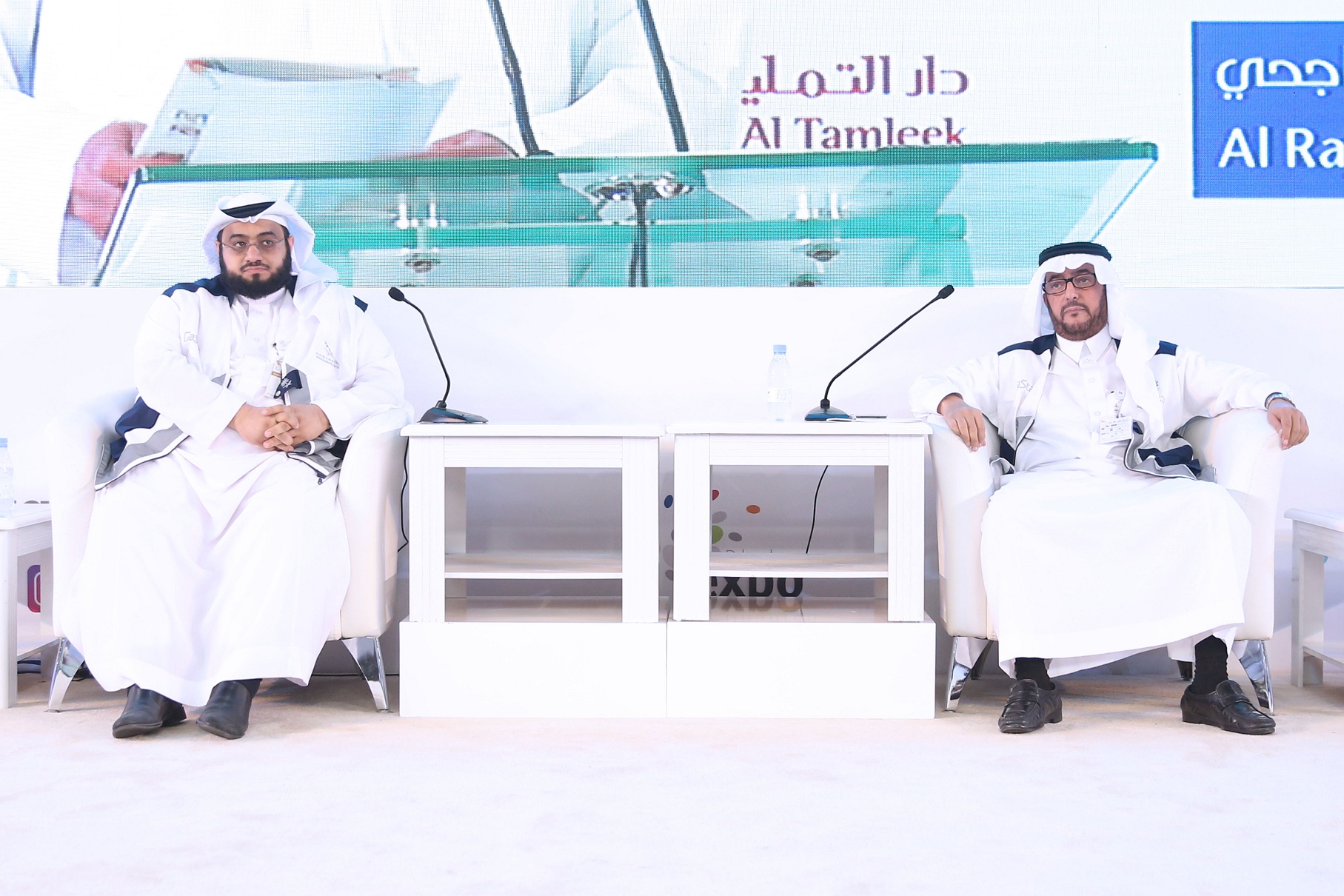
الهيئة العامة للإحصاء تطلق مؤشر الرقم القياسي للعقارات
Based on ministry of justice registry data
GaStat launches real estate index indicator
On Monday 18 Rabe'a second 1438 H corresponding 16 January 2017, GaStat launched the Saudi real estate index indicator. This indicator is based on available registry data of the ministry of justice that is about real estate transactions in 2015 and 2016. GaStat described this indicator as an essential tool that supports entities which make economic and statistical decisions associated with real estate price movements and future expectations during different periods of time. The indicator includes three main sectors composed of many real estate classes: residential sector ( piece of land, building, villa, apartment, and house) , commercial sector (piece of land, building, shop, and commercial center), and agricultural sector ( agricultural lands).
Real estate price index indicator showed a decrease in the Saudi real estate prices in 2016 compared to 2015 and 2014. The indicator registered a decrease of (6.1%) compared to 2015. Whereas it registered a decrease of (8.5%) compared to 2014.
During the fourth quarter of 2016, this indicator recorded a decrease of ( 3.5%) compared to the previous quarter. However, it recorded a decrease of (8.7%) compared to the same quarter of 2015.
The report attributed the decrease in the fourth quarter of 2016 (compared to the previous quarter) to the decrease in all composing sectors: commercial sector (4.1%), residential sector (3.4%), and agricultural sector (0.3%).
On the other hand, the decrease in the fourth quarter of 2016 (compared to the same quarter of 2015) to the decrease in all composing sectors: commercial sector (12.3%), residential sector (7.4%), and agricultural sector (1.1%).
GaStat indicated in a workshop ,held in " Restatex " exhibition in Dhahran city, that : as an official reference of statistics and an organizer of statistical sector in Saudi Arabia, one of Gastat tasks is follow up the price movement of real estate composing units and record the values of their transactions all over Saudi Arabia. In addition to monitoring their changes from time to time through the new statistical product " real estate price index" which relies on the data provided by ministry of justice. This represents the integration and cooperation between the different government entities which aim at moving sustainable development forward.
GaStat also stated that the new statistical product aims at founding distinct real estate statistical indicators that measure the Saudi real estate market performance and fill the gap of data in this sector. It is considered an essential tool that supports entities which make economic decisions in this field. This product's data benefit those who are interested in the economic and statistical analysis of real estate prices and the future expectations during different periods of time. GaStat has issued a complete bulletin about this index and its details on its website.
It is worth mentioning that GaStat has announced 45 new statistical products as a first stage of the new products which included economic, social, demographic, Umrah , and labor market statistics. In addition to energy, knowledge, environment, culture, sport, entertainment, safety, and security statistics.
Download: Real Estate Price Index Q4 2016 (PDF)
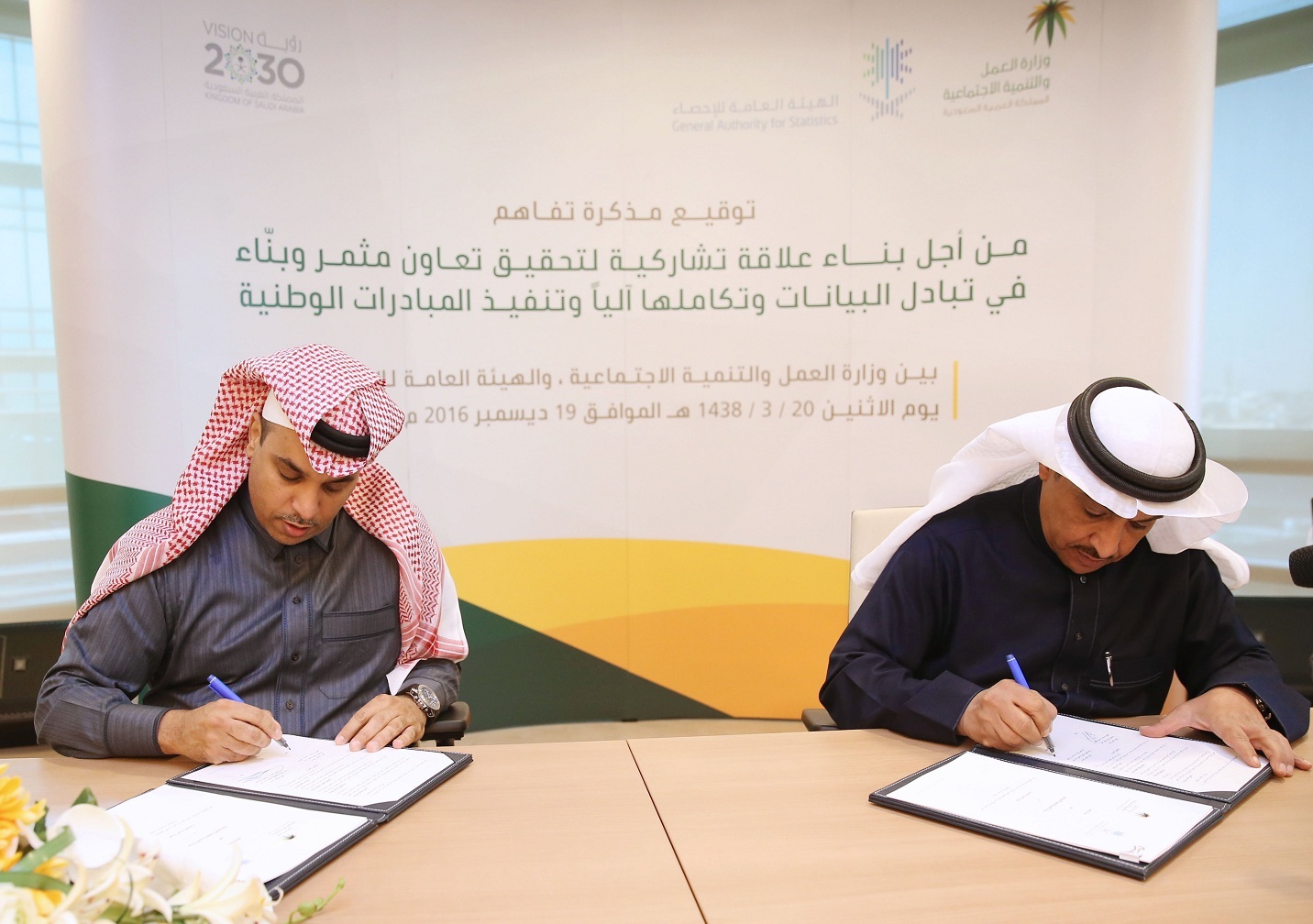
الهيئة العامة للإحصاء : نعمل على تطوير بيانات سوق العمل لدعم متخذي القرار
Signed a joint memorandum of understanding with the Ministry of Labour and Social Development
GaStat: We work on developing data of labour market to support decision makers
On Monday 20 Rabī‘ al-awwal,1438 corresponding to December 19, 2016 , GaStat signed a memorandum of understanding to develop electronic data exchange and integration and the implementation of a number of joint national initiatives relevant to the data of labour market in the Kingdom of Saudi Arabia. The national Labour Market Observatory and the "Labour Market bulletin" are considered the main outputs of this memorandum.
Mr. Taiseer Almofarrej, GaStat's official spokesman, clarified that the joint work in the field of data exchange with the Ministry of Labour and Social Development is a work in progress, and that the memo signed today by His Excellency Dr. Fahad Altekhaifi, GaStats President, and His Excellency the Deputy Minister of Labour and Social Development, Mr. Ahmad Saleh Alhomaidan in the framework of developing joint work, particularly after the merging of the Labour with Social Development is made to keep pace with the new changes in this field. Emphasizing on the importance of collaboration to provide statistical services that support decision makers and users by providing statistical data and information that is immediate, comprehensive, reliable and flexible in the best interest of beneficiaries either citizens or residents. Almofarrej stressed that the reinforcement of collaboration between GaStat and the Ministry is based on developing entire statistical products related to labour force, social development, establishments, statistical data exchange and integration and the integration of work at the relevant national observatories. The joint work also includes the unifying of standards, classifications and definitions of labour force, social development and establishments. The memorandum contributes in achieving the goals of the social development national strategy, the Saudi employment strategy, the tenth development plan, the privatization strategy and the national strategy of statistical development.
GaStat's official spokesman also asserted that most important outcomes of this collaboration is: the support of statistical data production and dissemination through surveys and administrative records carried out by GaStat and the Ministry on a regular basis, total coordination regarding labour force statistical data dissemination, facilitate cooperation in the exchange and flow of information, the development of Saudi labour market data system through providing a statistical database that is highly accurate to be used by decision makers, planners, researchers and relevant entities, unify efforts to ensure getting accurate statistical data for the most important indicators of the labour market and social development which contribute in the measurement of the 2030 Saudi Vision and the 2020 national transformation program, meet the requirements of the beneficiary entities, the collaboration in establishing a databases for GaStat which are not-for-profit, associations and charities, cooperative committees and social development centers, the collaboration and coordination to reinforce the specialized observatories currently in place, establish and prepare new statistical products specializes in the labour market and social development issues.
On the other hand, Mr. Taiseer Almofarrej clarified that GaStat is currently working in collaboration with the Ministry of Labour and Social development, Ministry of Civil Services, Human resources Development Fund and the General Organization for Social Insurance to develop the labour market data through the production of "Labour Market Bulletin" to be a periodic integrated bulletin that meets the demand for suitable trained and qualified manpower , and the supply side of the population of who are capable of working and willing to search for a job at certain period of time. The bulletin will be the updated version of the quarterly Labour force Survey results conducted by GaStat.
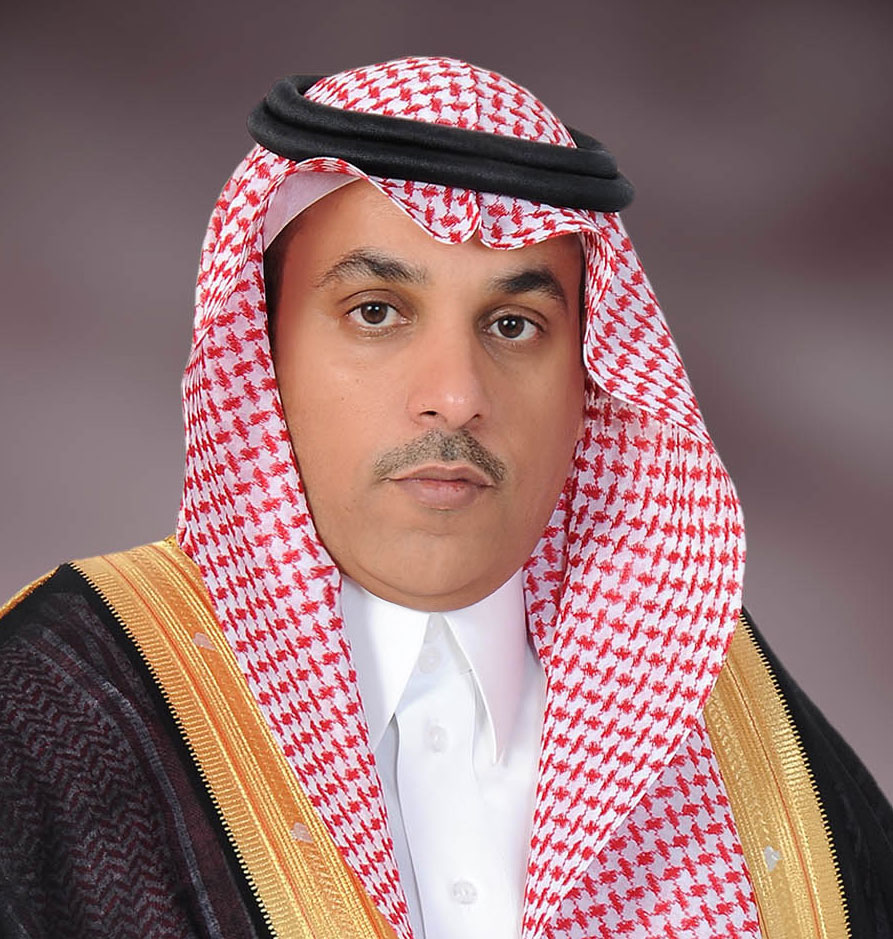
"المملكة" اتخذت خطوات فعالة لتنفيذ خطة أهداف التنمية المستدامة ٢٠٣٠ المقرَّة من الأمم المتحدة بما ينسجم مع خطط التنمية الوطنية وخصوصيتها
At the end of the 29th session of "ESCWA" held in Doha
Dr.Altekhaifi: the "Kingdom" has taken effective steps to implement the plan of the 2030 sustainable development goals approved by the United Nations in line with the national development plans
The United Nations Economic and Social Commission for West Asia (ESCWA) has recently ended its 29th ministerial session entitled "Implementing the Sustainable Development Goals of 2030 in Arab countries". Where the whole participants came together in order to implement the 2030 sustainable development plan, taking into account the particularities of the regions and its development priorities. The chairman of the Saudi Delegation participating in the Session, GaStat President, H.E. Dr. Fahad Altekhaifi mentioned that the Arab region countries faces multiple challenges in the implementation of the " the plan of the Sustainable Development Goals of 2030" approved by world leaders approximately year ago. These challenges include economical and social, political, developmental challenges. The most prominent of these challenges is the statistical challenges related to building indicators that measures the progress of the(17) goals and its (240) indices according to latest update in (May) 2016.
His Excellency explained that one of the most important factors that will help in the implementation of the sustainable goals plan is the state's ability to develop its development plans to adapt with the international plans, provided that they do not violate the Islamic shari'aa law and suits Saudi Arabia.
His Excellency assured that the Kingdom of Saudi Arabia worked in two tracks to implement the goals of the 2030 sustainable development approved by the United Nations: the first track is developing a governance to track the implementation of plan, and it was assigned to the Ministry of Economy and Planning who will be responsible of the management of this file, follow-up, coordinate with all government entities, assigning government entities to follow-up with the goals within their competence. In addition, GaStat builds these indicators through the expansion of statistical work implementation either through designing new statistical surveys, develop current surveys, or build indicators from the data collected from the records of other government entities. The second track that Saudi Arabia worked on is developing its national development plans (Saudi Vision 2030), and connect it to the global plans(sustainable development plans). The 20130 Saudi vision and its (13) programs such as 2020national transformation program, government entities restructuring, projects managing program and other programs, and its (24) indicators, took into account the compatibility with the goals of sustainable development.
On the other hand, Dr. Altekhaifi stressed the Doha announcement in the end session of the 29th meeting of ESCWA to invite all States to provide adequate support to update statistical systems to produce data necessary to measure the progress in achieving the goals of sustainable development. Furthermore, promote dialogue between policy makers and data producers and users to record progress in implementing national and international plans. Finally, support the initiatives of some Arab countries to for the adoption of national strategies for the development of statistics.
